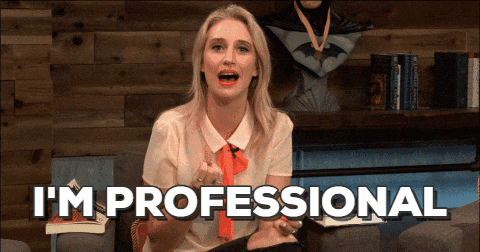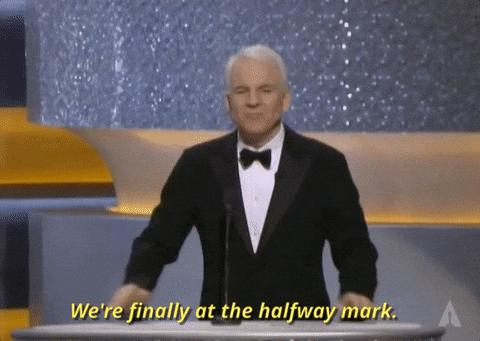99 Effective Quiz Examples to Boost Engagement in 2025

Introduction
Looking for fresh quiz examples to engage your audience in 2025? Whether you’re a teacher, marketer, or content creator, quizzes remain one of the most effective tools for interaction and assessment. Furthermore, they provide valuable insights while keeping participants entertained. This comprehensive guide offers 99 practical quiz examples you can implement immediately.
In today’s digital landscape, standing out requires interactive content that both captivates and delivers value. These quiz examples transform passive consumption into active participation, increasing retention and audience satisfaction. Additionally, they provide practical solutions for education, marketing, and personal development needs while creating memorable experiences that audiences genuinely appreciate.
🎓 Educational Quiz Examples
1. Historical Timeline Sequencing
Create a quiz where participants drag and drop historical events into chronological order. For example, provide events like “Moon Landing,” “Fall of the Berlin Wall,” and “Industrial Revolution” as movable elements. This quiz example tests knowledge of history while strengthening understanding of cause-and-effect relationships. Include immediate feedback that explains the correct sequence and provides brief context about each event’s significance.
2. Scientific Method Application
Design a quiz presenting scientific scenarios with hypotheses, asking participants to select the next appropriate step (observation, experimentation, analysis, etc.). For instance, “Hypothesis: Plants grow better with classical music. What should be the next step?” Include multiple scenarios across different scientific disciplines. Consequently, this reinforces proper research methodology and critical thinking skills. Provide explanations for correct answers to deepen understanding.
3. Literary Character Analysis
Create a matching quiz with character quotes on one side and character names on the other. Include quotes that reveal character traits, motivations, or development. For example, pair Hamlet’s “To be or not to be” with his character, explaining the significance of the quote. This quiz example deepens literary comprehension, character understanding, and textual analysis skills. Add contextual information about each character and work for educational value.
4. Mathematical Word Problem Scenarios
Develop a quiz with real-world scenarios requiring mathematical solutions at various difficulty levels. For example, “If a car travels at 60 mph for 2.5 hours, how far will it travel?” or more complex problems involving multiple variables. This practical application of math concepts makes learning more relevant and engaging. Include step-by-step solution explanations to reinforce mathematical reasoning.
5. Geographic Feature Identification
Create a visual quiz using satellite images, maps, or photographs of geographic features (mountains, peninsulas, archipelagos, etc.) for identification. For instance, show an image of the Grand Canyon and ask participants to identify it. As a result, this enhances spatial awareness and geographical knowledge. Include information about each feature’s location, formation, and significance for deeper learning.
6. Language Pattern Recognition
Design a quiz that presents examples of grammar rules, idioms, or language patterns and asks participants to identify additional correct examples or exceptions. For example, show irregular verb conjugations like “swim/swam/swum” and ask participants to select correct conjugations for other verbs. Therefore, this reinforces language pattern recognition and linguistic rule application. Include brief explanations of the rules involved.
7. Chemistry Element Matching
Create a matching quiz where participants connect elements with their symbols, atomic numbers, and properties. For example, match “Na” with “Sodium” and its properties. Increase complexity by including electron configurations or common compounds. This quiz example strengthens foundation chemistry knowledge and periodic table familiarity. Include visual representations of atomic structures for better conceptual understanding.
8. Biological Classification
Develop a quiz that presents organisms (using images) and asks participants to properly categorize them by taxonomy (kingdom, phylum, class, etc.). For instance, show a dolphin and ask whether it’s a fish or mammal, then explain the defining characteristics. This reinforces scientific classification understanding and observation skills. Include explanations about key characteristics that determine classification.
9. Coding Syntax Correction
Create a quiz showing code snippets with deliberate errors in various programming languages and ask participants to identify corrections. For example, show a Python function with incorrect indentation or a missing colon. Consequently, this builds practical programming skills and attention to detail. Provide explanations for each error and the corrected version to reinforce proper syntax understanding.
10. Artistic Style Recognition
Design a visual quiz displaying artwork from different periods and movements, asking participants to identify artistic styles (Renaissance, Impressionism, Cubism, etc.). For example, show Monet’s “Water Lilies” and ask participants to identify the artistic movement. This enhances art appreciation and historical context understanding. Include information about key characteristics of each style and historical context.

💼 Professional Development Quiz Examples
11. Leadership Scenario Analysis
Create a scenario-based quiz presenting workplace leadership challenges with multiple possible responses. For example, “Your team member consistently misses deadlines. What approach would be most effective?” Provide options ranging from punitive to coaching-oriented responses. This quiz example develops situational leadership skills by encouraging thoughtful response selection. Include explanations about why certain approaches work better in specific contexts.
12. Project Management Methodology Matching
Design a quiz that describes specific project challenges and asks which methodology (Agile, Waterfall, Kanban, etc.) would be most appropriate. For instance, “A project with changing requirements and need for constant client feedback” would match with Agile. As a result, participants improve project planning skills and methodology selection. Provide explanations of each methodology’s strengths and ideal applications.
13. Communication Style Assessment
Develop a quiz presenting workplace communication scenarios and asking participants to identify effective approaches for different audiences. For example, “How should technical information be presented to non-technical stakeholders?” with multiple communication style options. This builds adaptable communication skills and audience awareness. Include explanations about why communication styles need to adapt to different contexts.
14. Time Management Prioritization
Create a quiz showing realistic task lists with deadlines, importance levels, and effort requirements, asking participants to rank them by priority using frameworks like the Eisenhower Matrix. Therefore, this develops crucial time management skills and decision-making abilities. Include explanations of prioritization frameworks and reasoning behind correct answers.
15. Emotional Intelligence Scenarios
Design a scenario-based quiz presenting workplace emotional situations and asking for appropriate responses that demonstrate emotional intelligence. For example, “A colleague appears visibly upset after a meeting. What’s the most emotionally intelligent response?” This quiz example strengthens interpersonal effectiveness and emotional awareness. Include explanations about the components of emotional intelligence demonstrated in correct answers.
16. Conflict Resolution Approaches
Create a quiz describing realistic workplace conflicts and asking participants to select effective resolution strategies from multiple options. For instance, “Two team members disagree on project direction. What approach would most effectively resolve this?” Consequently, this improves team harmony and develops conflict management skills. Include explanations about different conflict resolution styles and their appropriate applications.
17. Strategic Thinking Assessment
Develop case-study quizzes presenting business scenarios and asking participants to identify strategic opportunities, threats, or appropriate responses. For example, “A competitor has just lowered prices by 15%. What strategic response would be most effective?” This develops forward-thinking business acumen and analytical skills. Include explanations of strategic frameworks and reasoning behind answers.
18. Professional Ethics Dilemmas
Create a quiz presenting ethical gray areas professionals might encounter and ask participants to navigate appropriate responses. For instance, “You discover a small accounting error that benefits your company. What’s the ethical response?” This reinforces ethical decision-making and values-based leadership. Include explanations referencing professional ethical standards and decision-making frameworks.
19. Crisis Management Scenarios
Design a quiz presenting organizational crisis scenarios (data breach, PR disaster, operational failure) and asking for appropriate response plans and communication strategies. As a result, participants develop readiness for unexpected challenges and crisis leadership skills. Include step-by-step crisis management frameworks and explanations of effective approaches.
20. Industry Trend Recognition
Create a quiz showing industry developments and asking participants to identify implications for business strategy or operations. For example, “How might this technological advancement affect supply chain management?” This quiz example builds forward-looking business awareness and adaptation skills. Include expert insights about trend implications and strategic responses.

📊 Marketing Quiz Examples
21. Customer Persona Matching
Design a quiz describing customer behaviors, demographics, and pain points, asking participants to match them to correct marketing personas. For instance, “35-year-old urban professional concerned with sustainability and premium quality” would match a specific buyer persona. This strengthens customer understanding and targeted marketing capabilities. Include detailed persona descriptions and key identifying characteristics.
22. Brand Voice Consistency
Create a quiz showing various marketing copy examples and asking if they match an established brand voice (described or exemplified). For example, show social media posts and ask which ones align with a “playful, irreverent” brand voice. Therefore, this maintains consistent brand communication and messaging coherence. Include examples of voice-aligned content and explanations of brand voice elements.
23. Value Proposition Identification
Develop a quiz presenting product descriptions and asking participants to select the strongest value proposition from multiple options. For instance, “Which statement most effectively communicates this product’s value to the target audience?” This quiz example sharpens marketing message effectiveness and customer benefit articulation. Include explanations about what makes value propositions compelling.
24. Target Audience Selection
Create a quiz describing products or services and asking participants to identify ideal target audiences from multiple demographic and psychographic options. For example, “This premium organic baby food would best target which consumer segment?” Consequently, this improves market segmentation skills and audience alignment. Include reasoning behind audience selections and targeting principles.
25. Marketing Channel Optimization
Design a quiz presenting campaign goals, budgets, and target audiences, asking participants to select appropriate marketing channels from multiple options. For instance, “Which channel would be most effective for reaching Gen Z consumers with a limited budget?” This builds strategic marketing planning skills and channel selection expertise. Include channel statistics and effectiveness metrics for different scenarios.
26. Consumer Psychology Application
Create a quiz describing marketing scenarios and asking how to apply psychological principles (scarcity, social proof, etc.) for better results. For example, “Which principle would most effectively increase conversions on this landing page?” This enhances persuasive marketing capabilities and psychological insight. Include explanations of psychological principles and their marketing applications.
27. Competitive Analysis Comparison
Develop a quiz showing competitor strategies, messaging, and positioning, asking participants to identify strengths, weaknesses, and potential responses. As a result, this develops competitive intelligence skills and strategic thinking. Include frameworks for competitive analysis and strategic response development.
28. ROI Calculation Scenarios
Create a quiz presenting marketing campaign expenses, results, and metrics, asking participants to calculate ROI or identify the highest-performing initiatives. For example, “Calculate the ROI for this email campaign given $2,000 cost and $12,000 in attributed sales.” This quiz example builds essential marketing measurement skills and financial acumen. Include ROI calculation formulas and interpretation guidelines.
29. Content Strategy Alignment
Design a quiz showing content examples (blog posts, videos, infographics) and asking participants to match them with appropriate marketing funnel stages (awareness, consideration, decision). Therefore, this improves content strategic planning and purpose-driven content creation. Include explanations about content characteristics appropriate for each funnel stage.
30. Social Media Engagement Tactics
Create a quiz presenting social media scenarios, platform specifics, and campaign goals, asking for optimal engagement approaches from multiple options. For instance, “Which content approach would generate highest engagement for this B2B company on LinkedIn?” This enhances social media marketing effectiveness and platform-specific strategy. Include platform-specific best practices and engagement metrics.

🧠 Health and Wellness Quiz Examples
31. Nutrition Label Analysis
Design a quiz showing real food nutrition labels and asking specific questions about nutritional content, daily value percentages, or ingredient concerns. For example, “How many servings of this product would exceed the recommended daily sodium intake?” Consequently, this builds practical healthy shopping skills and nutritional literacy. Include explanations about nutritional guidelines and label interpretation.
32. Exercise Form Assessment
Create a visual quiz presenting exercise demonstrations (images or descriptions) and asking participants to identify proper form, technique errors, or improvement suggestions. For instance, show images of correct and incorrect squat forms and ask participants to identify the proper technique. This quiz example promotes safe fitness practices and injury prevention. Include anatomical explanations and form correction guidance.
33. Mental Health Awareness
Develop a quiz describing psychological scenarios and asking participants to identify healthy responses, warning signs, or appropriate support resources. For example, “Which response would be most supportive for someone experiencing these symptoms of anxiety?” This promotes emotional wellness understanding and support skills. Include mental health resources and evidence-based approaches.
34. Sleep Hygiene Practices
Create a quiz presenting sleep habits and environmental factors, asking participants to identify approaches for improved sleep quality. For instance, “Which bedtime routine would most effectively promote quality sleep?” As a result, this encourages better sleep quality and lifestyle adjustments. Include sleep science explanations and practical implementation guidance.
35. Stress Management Techniques
Design a quiz describing various stressful situations and asking for appropriate evidence-based coping strategies from multiple options. For example, “Which technique would be most effective for managing acute work deadline stress?” Therefore, this builds resilience and practical self-care skills. Include explanations about stress physiology and technique application.
36. Medical Terminology Recognition
Create a quiz showing medical terms and asking for meanings in plain language, or presenting common medical scenarios and asking for appropriate terminology. For instance, “What does ‘myocardial infarction’ mean in everyday language?” This quiz example improves health literacy and doctor-patient communication. Include etymology explanations and medical context.
37. First Aid Response
Develop a scenario-based quiz presenting emergency situations and asking for appropriate first aid responses based on current guidelines. For example, “Someone is showing these signs of choking. What’s the correct first response?” Consequently, this builds potentially life-saving knowledge and emergency confidence. Include first aid guidelines and decision-making flowcharts.
38. Preventive Health Measures
Create a quiz describing health scenarios, risk factors, or demographic characteristics, asking participants to identify evidence-based preventive approaches. For instance, “Which screening would be most appropriate for someone with this family history?” This encourages proactive wellness management and preventive care. Include prevention guidelines and rationales.
39. Medication Safety
Design a quiz presenting medication scenarios involving drug interactions, timing, food effects, or contraindications, asking for safe usage guidance. For example, “Which of these over-the-counter medications should not be taken with this prescription?” As a result, this promotes pharmaceutical safety and medication adherence. Include pharmacological explanations and safety principles.
40. Healthcare System Navigation
Create a quiz describing various healthcare needs and scenarios, asking participants to identify appropriate services, providers, or access points within the healthcare system. For instance, “Which healthcare provider would be most appropriate for this condition?” This quiz example develops healthcare self-advocacy and system literacy. Include healthcare system explanations and access guidance.
💰 Financial Literacy Quiz Examples
41. Investment Risk Assessment
Design a quiz presenting various investment options (stocks, bonds, real estate, etc.) with different characteristics, asking participants to rank risk levels or match investments to risk profiles. For example, “Which investment option carries the highest risk and potential return?” Therefore, this builds financial risk awareness and portfolio planning skills. Include risk-return relationship explanations and diversification principles.
42. Budget Category Allocation
Create a realistic quiz showing income scenarios and asking for appropriate budget allocations across categories using frameworks like the 50/30/20 rule. For instance, “How would you optimally allocate this monthly income across essential expenses, savings, and discretionary spending?” Consequently, this develops practical budgeting skills and financial planning abilities. Include budgeting frameworks and category guidance.
43. Tax Deduction Identification
Develop a quiz describing common expenses, life events, or financial activities, asking participants to identify legitimate tax deductions or credits. For example, “Which of these home office expenses would qualify as tax-deductible?” This quiz example improves tax planning knowledge and financial optimization. Include tax code explanations and qualification criteria.
44. Retirement Planning Timeline
Create an age-based quiz presenting life stages and asking for appropriate retirement planning actions and milestones. For instance, “Which retirement planning action would be most appropriate for someone at age 35?” As a result, this encourages long-term financial planning and age-appropriate financial decision-making. Include retirement planning roadmaps and age-based guidelines.
45. Debt Management Strategies
Design a quiz showing various debt scenarios (student loans, credit cards, mortgages) with different interest rates and terms, asking for optimal repayment approaches. For example, “Which debt should be prioritized for repayment given these interest rates?” This builds financial freedom planning skills and debt reduction strategy. Include debt avalanche/snowball methods and interest impact explanations.
46. Insurance Coverage Matching
Create a quiz describing specific risk scenarios, assets, or life situations, asking which insurance types would provide appropriate coverage. For instance, “Which insurance would cover damage to your home from this natural disaster?” Therefore, this improves protection planning and risk management. Include insurance type explanations and coverage limitations.
47. Financial Goal Setting
Develop a quiz presenting various life situations, values, and timeframes, asking participants to identify appropriate SMART financial goals. For example, “Which financial goal would be most appropriate for this young family’s situation?” This quiz example develops purposeful financial planning and goal-setting skills. Include SMART goal framework explanations and milestone planning.
48. Credit Score Improvement
Create a scenario-based quiz showing various financial behaviors and asking participants to identify actions that would positively or negatively impact credit scores. For instance, “Which action would most improve a credit score within 3 months?” Consequently, this builds credit management skills and financial reputation awareness. Include credit score factor explanations and improvement strategies.
49. Economic Trend Impact
Design a quiz presenting economic changes (interest rate adjustments, inflation increases, market shifts) and asking about potential personal financial impacts or appropriate responses. For example, “How might this Federal Reserve decision affect mortgage rates?” This develops economic literacy and financial adaptation skills. Include economic principle explanations and practical implications.
50. Financial Fraud Recognition
Create a quiz showing realistic scenarios involving potential financial scams, fraud attempts, or security risks, asking participants to identify red flags or appropriate responses. For instance, “Which element of this email indicates it might be a phishing attempt?” As a result, this builds financial security awareness and protection skills. Include common fraud tactics and prevention strategies.

🎬 Entertainment and Media Quiz Examples
51. Film Genre Identification
Design a visual quiz showing movie clips, posters, or scene descriptions and asking participants to identify film genres or sub-genres. For example, show a scene combining science fiction and western elements and ask participants to identify the genre blend. Therefore, this builds media literacy and genre recognition skills. Include genre characteristic explanations and notable examples.
52. Music Era Recognition
Create an audio quiz playing song samples from different decades or periods, asking participants to identify the correct era, movement, or influence. For instance, play a 1970s disco track and ask participants to identify the decade and style. This quiz example enhances music historical knowledge and cultural context understanding. Include music history information and stylistic characteristics.
53. Literary Device Spotting
Develop a quiz presenting text excerpts and asking participants to identify specific literary techniques, devices, or stylistic elements. For example, “Which literary device is demonstrated in this passage from Shakespeare?” Consequently, this builds deeper reading comprehension and literary analysis skills. Include literary device definitions and application examples.
54. Cultural Reference Origins
Create a quiz showing popular references, memes, catchphrases, or commonly quoted lines, asking about their original sources or context. For instance, “Which film originated this famous quote?” This develops cultural context understanding and media history knowledge. Include reference origin stories and cultural impact information.
55. Media Influence Analysis
Design a quiz presenting media examples and asking about potential societal impacts, messaging, or representation issues. For example, “Which societal value is being reinforced in this advertisement?” As a result, this builds critical media consumption skills and analytical thinking. Include media analysis frameworks and influence principles.
56. Celebrity Career Timelines
Create a quiz about public figures showing career highlights and asking participants to sequence milestones chronologically or identify turning points. For instance, “Which came first in this actor’s career?” This quiz example tests pop culture knowledge chronology and entertainment history. Include career context and industry evolution information.
57. Reality vs. Fiction Discernment
Develop a quiz presenting entertainment content based on real events and asking participants to distinguish factual elements from creative liberties or fictionalization. For example, “Which element of this historical drama is historically accurate?” Therefore, this develops media critical thinking and fact-checking habits. Include historical context and creative adaptation explanations.
58. Artistic Technique Identification
Create a visual quiz showing artwork and asking participants to identify specific techniques, materials, or processes used. For instance, “Which painting technique is demonstrated in this artwork?” Consequently, this builds artistic appreciation and technical understanding. Include artistic method explanations and historical development.
59. Entertainment Franchise Matching
Design a quiz presenting characters, scenes, quotes, or imagery and asking participants to identify the correct entertainment franchise, universe, or series. For example, “Which sci-fi universe features this spacecraft design?” This tests entertainment knowledge breadth and franchise familiarity. Include franchise development information and universe characteristics.
60. Script Dialogue Completion
Create a quiz showing famous movie or TV show scenes with missing dialogue and asking participants to complete the lines correctly. For instance, “Complete this famous line from The Godfather.” As a result, this tests film familiarity depth and cultural knowledge. Include scene context and quote significance information.
💻 Technology Quiz Examples
61. Tech Term Definition
Design a quiz presenting technical terms, acronyms, or jargon and asking for plain language explanations or applications. For example, “What does ‘API’ mean and what’s its function in simple terms?” This quiz example builds technology literacy and communication skills. Include practical applications and context for technical concepts.
62. Digital Security Best Practices
Create a scenario-based quiz showing online situations, messages, or behaviors and asking participants to identify secure practices or potential vulnerabilities. For instance, “Which password would be most secure for this sensitive account?” Therefore, this promotes cybersecurity awareness and digital safety habits. Include security principle explanations and protection strategies.
63. Software Feature Matching
Develop a quiz describing specific digital tasks or challenges and asking which software features, tools, or applications would best address them. For example, “Which software feature would most efficiently accomplish this data visualization task?” Consequently, this improves technical productivity and tool selection. Include feature comparison information and use case guidance.
64. Tech Evolution Timeline
Create a visual quiz showing technologies, devices, or interfaces and asking participants to place them in historical development order. For instance, “Arrange these storage technologies in the order they were introduced to consumers.” This develops understanding of technological progression and innovation context. Include tech development history and milestone information.
65. Programming Logic Assessment
Design a quiz presenting code problems, algorithms, or computational challenges and asking participants to identify logical solutions or outcomes. For example, “What would be the output of this function given these inputs?” As a result, this builds computational thinking and algorithm understanding. Include logic explanation and problem-solving approaches.
66. Hardware Component Recognition
Create a visual quiz showing computer or device components and asking participants to identify functions, compatibility, or specifications. For instance, “What is this component and what function does it serve?” This quiz example develops technical hardware knowledge and system understanding. Include component specifications and relationship explanations.
67. Digital Ethics Scenarios
Develop a scenario-based quiz presenting technology use cases, AI applications, or data practices and asking for ethical considerations or appropriate approaches. For example, “Which approach to facial recognition technology would be most ethically sound?” Therefore, this builds responsible tech usage awareness and ethical framework application. Include digital ethics principles and case analyses.
68. Tech Troubleshooting Logic
Create a quiz describing technical problems with devices, networks, or applications and asking for logical troubleshooting steps or likely causes. For instance, “What would be the first troubleshooting step for this network issue?” Consequently, this develops practical problem-solving skills and systematic approach building. Include troubleshooting methodologies and diagnostic approaches.
69. Emerging Technology Applications
Design a quiz presenting new technologies (AI, blockchain, IoT, etc.) and asking participants to identify practical applications, limitations, or implications. For example, “Which business process would benefit most from this blockchain application?” This builds innovation opportunity recognition and future-focused thinking. Include emerging tech capabilities and implementation considerations.
70. Digital Accessibility Awareness
Create a quiz showing digital content, interfaces, or designs and asking participants to identify accessibility issues or improvements for users with disabilities. For instance, “Which element of this website creates barriers for visually impaired users?” As a result, this promotes inclusive digital design and accessibility standards knowledge. Include WCAG guidelines and inclusive design principles.

🌎 Social and Cultural Quiz Examples
71. Cultural Etiquette Matching
Design a quiz describing international or cross-cultural settings and asking for appropriate cultural behaviors, gestures, or communication approaches. For example, “Which greeting would be most appropriate in this Japanese business setting?” This quiz example builds cultural intelligence and global communication skills. Include cultural context explanations and etiquette principles.
72. Historical Impact Assessment
Create a quiz presenting historical events, movements, developments, or other examples and asking participants to identify modern influences or legacies. For instance, “How did this historical movement influence current political structures?” Therefore, this develops historical context understanding and causality recognition. Include historical analysis and contemporary connection explanations.
73. Social Movement Recognition
Develop a quiz showing social activism examples, symbols, or figures and asking participants to identify associated movements, causes, or time periods. For example, “Which social movement is represented by this symbol?” Consequently, this builds social awareness and movement literacy. Include movement history and significance explanations.
74. Global Geography Knowledge
Create a map-based quiz presenting countries, regions, or geographical features and asking for capital cities, neighboring countries, or regional information. For instance, “Which countries share a border with this nation?” This develops world geography literacy and spatial understanding. Include geographic data and regional relationship information.
75. Cultural Symbol Understanding
Design a visual quiz showing cultural symbols, artifacts, or iconography and asking for their meanings, origins, or significance. For example, “What does this symbol represent in Buddhist tradition?” As a result, this builds cross-cultural appreciation and symbolic literacy. Include symbol history and cultural context explanations.
76. Demographic Trend Analysis
Create a quiz presenting population data, charts, or projections and asking participants to identify social trends, implications, or future developments. For instance, “What societal change is indicated by this demographic shift?” This quiz example enhances sociological understanding and trend analysis skills. Include demographic interpretation frameworks and trend implications.
77. Diverse Perspective Taking
Develop a scenario-based quiz describing cross-cultural situations and asking participants to consider various cultural viewpoints or interpretations. For example, “How might people from these different cultures interpret this business proposal differently?” Therefore, this develops empathy and cultural perspective-taking abilities. Include cultural lens explanations and viewpoint comparisons.
78. Language Origin Identification
Create a quiz showing words, phrases, or expressions and asking participants to identify etymological origins, language families, or historical developments. For instance, “Which ancient language contributed this term to modern English?” Consequently, this builds linguistic appreciation and language history knowledge. Include etymology information and language evolution context.
79. Cultural Cuisine Recognition
Design a visual quiz presenting international dishes and asking about origins, ingredients, cultural significance, or preparation methods. For example, “Which country originated this dish and what are its key ingredients?” This develops global culinary knowledge and food culture understanding. Include culinary history and cultural context information.
80. Ritual and Tradition Understanding
Create a quiz showing cultural practices, ceremonies, or traditions and asking about their significance, origins, or modern adaptations. For instance, “What is the cultural significance of this coming-of-age tradition?” As a result, this builds cultural respect and tradition comprehension. Include practice history and ceremonial significance explanations.
🌱 Personal Development Quiz Examples
81. Strength Recognition
Design a scenario-based quiz presenting personal or professional challenges and asking participants to identify character strengths, abilities, or competencies being used or needed. For example, “Which character strength is primarily demonstrated in this accomplishment?” This quiz example builds self-awareness and strength-based development. Include character strength definitions and application contexts.
82. Learning Style Assessment
Create a quiz describing learning scenarios, information processing, or skill acquisition and asking which approaches would be most effective for different learning preferences. For instance, “Which study method would be most effective for someone with this learning style?” Therefore, this improves educational self-advocacy and personalized learning strategy. Include learning style explanations and adaptation strategies.
83. Goal Setting Alignment
Develop a quiz presenting life goals, aspirations, or desired outcomes and asking participants to identify aligned actions, milestones, or potential obstacles. For example, “Which action would most directly support progress toward this career goal?” Consequently, this develops intentional living skills and goal achievement strategies. Include goal framework methodologies and alignment principles.
84. Habit Formation Strategies
Create a quiz showing behavior change scenarios, routine development, or habit-building challenges and asking for effective implementation strategies based on habit science. For instance, “Which approach would most effectively establish this new morning routine?” This builds personal development momentum and behavior design skills. Include habit formation research and implementation techniques.
85. Mindset Pattern Recognition
Design a quiz presenting challenging situations or setbacks and asking participants to identify growth versus fixed mindset responses or interpretations. For example, “Which response demonstrates a growth mindset toward this feedback?” As a result, this promotes resilience and mindset awareness. Include mindset research and perspective-shifting techniques.
86. Emotional Awareness
Create a quiz describing situations, interactions, or experiences and asking participants to identify resulting emotions, emotional triggers, or regulation strategies. For instance, “Which emotion is most likely being experienced in this situation?” This quiz example builds emotional intelligence and self-regulation skills. Include emotion recognition cues and management strategies.
87. Value Clarification
Develop a scenario-based quiz presenting decision points, ethical dilemmas, or life choices and asking participants to identify underlying values or principles at stake. For example, “Which core value is being prioritized in this decision?” Therefore, this develops authentic decision-making and value-aligned living. Include value definition frameworks and application guidance.
88. Life Balance Assessment
Create a quiz showing lifestyle scenarios, time allocation, or priority setting and asking participants to identify balance improvements, boundary needs, or wellbeing considerations. For instance, “Which change would most improve work-life balance in this situation?” Consequently, this promotes holistic wellbeing and life satisfaction. Include balance frameworks and boundary-setting strategies.
89. Productivity Style Matching
Design a quiz presenting work approaches, organization methods, or time management systems and asking participants to match with productivity systems or personalized approaches. For example, “Which productivity system would best complement this working style?” This builds personalized efficiency strategies and workflow optimization. Include productivity method explanations and matching criteria.
90. Personal Brand Consistency
Create a quiz showing professional behaviors, communications, or presentations and asking if they align with intended personal brands, professional identities, or career goals. For instance, “Which communication approach would best reinforce this desired professional reputation?” As a result, this develops authentic professional presence and brand alignment. Include personal branding principles and consistency strategies.

🎯 Interactive Event Quiz Examples
91. Team Building Challenge
Design an interactive quiz presenting group scenarios or challenges and asking teams to collaboratively select optimal team collaboration approaches or solutions. For example, “Your team has limited resources to solve this problem. Which approach would be most effective?” This quiz example builds teamwork skills and collective problem-solving abilities. Include team dynamics principles and collaboration frameworks.
92. Ice Breaker Personality Matching
Create a fun quiz asking personal preference questions (travel destinations, hobbies, food preferences) and using an algorithm to match participants with similar answers for conversation starters. For instance, participants with similar travel dreams are grouped for discussions. Therefore, this facilitates new connections and conversation initiation. Include conversation prompt suggestions and matching logic explanations.
93. Event Knowledge Scavenger Hunt
Develop a location-based quiz creating questions requiring physical or virtual exploration of an event space to find answers. For example, “Find the answer to this industry question at booth #12.” Consequently, this encourages venue engagement and active participation. Include gamification elements and completion incentives.
94. Opinion Polling Visualization
Create a real-time polling quiz asking opinion questions and displaying live results to the entire group through visualizations (bar charts, word clouds, etc.). For instance, “What industry trend will have the biggest impact next year?” with results showing immediately. This builds community through shared perspectives and discussion catalysts. Include result interpretation guidance and discussion prompts.
95. Collaborative Problem Solving
Design a progressive quiz presenting challenges requiring aggregated group knowledge, where teams build on previous answers to reach solutions. For example, each team contributes part of a complex solution based on their expertise. As a result, this develops collective intelligence skills and collaboration capabilities. Include facilitation guidelines and solution integration frameworks.
🔍 Specialized Niche Quiz Examples
96. Hobby Expertise Level Assessment
Create a multi-level quiz presenting hobby-specific challenges of increasing difficulty to help enthusiasts gauge their skill progression. For example, a photography quiz progressing from basic composition to advanced lighting techniques. This quiz example helps enthusiasts gauge skill progression and development areas. Include skill level benchmarks and development resources.
97. Collector Knowledge Verification
Develop a specialized quiz showing collectible items (coins, stamps, memorabilia, etc.) and asking specific identification questions about authenticity, value, or rarity indicators. For instance, “Which feature distinguishes this authentic vintage item from reproductions?” Therefore, this validates specialized knowledge and builds expertise. Include authentication guidance and collector resources.
98. Specialized Industry Certification Prep
Create a practice quiz presenting professional certification questions in formats matching actual exams, with explanations and study resources. For example, sample questions from IT certifications, project management credentials, or financial advisor exams. Consequently, this builds exam readiness and professional knowledge. Include exam preparation strategies and knowledge area explanations.
99. Generational Reference Recognition
Design a quiz showing era-specific cultural references (music, TV, events, products) and asking participants to identify decades or generations most familiar with them. For instance, “Which generation would most readily recognize this TV show reference?” This builds intergenerational understanding and cultural context awareness. Include generational characteristics and cultural touchstone explanations.
🏁 Conclusion
These 99 quiz examples provide a versatile toolkit for engagement across numerous contexts in 2025. By selecting and customizing examples that align with your specific goals, you’ll create more interactive experiences for your audience. Most importantly, remember that the best quiz examples balance entertainment with genuine value, creating memorable interactions that achieve your objectives.
Start by implementing one quiz example that addresses your specific needs, then measure results and refine your approach. As interactive content continues to gain importance, these examples will help you build stronger connections with your audience. Therefore, consider these quizzes not just as assessment tools, but as gateways to more meaningful engagement in an increasingly digital world.




